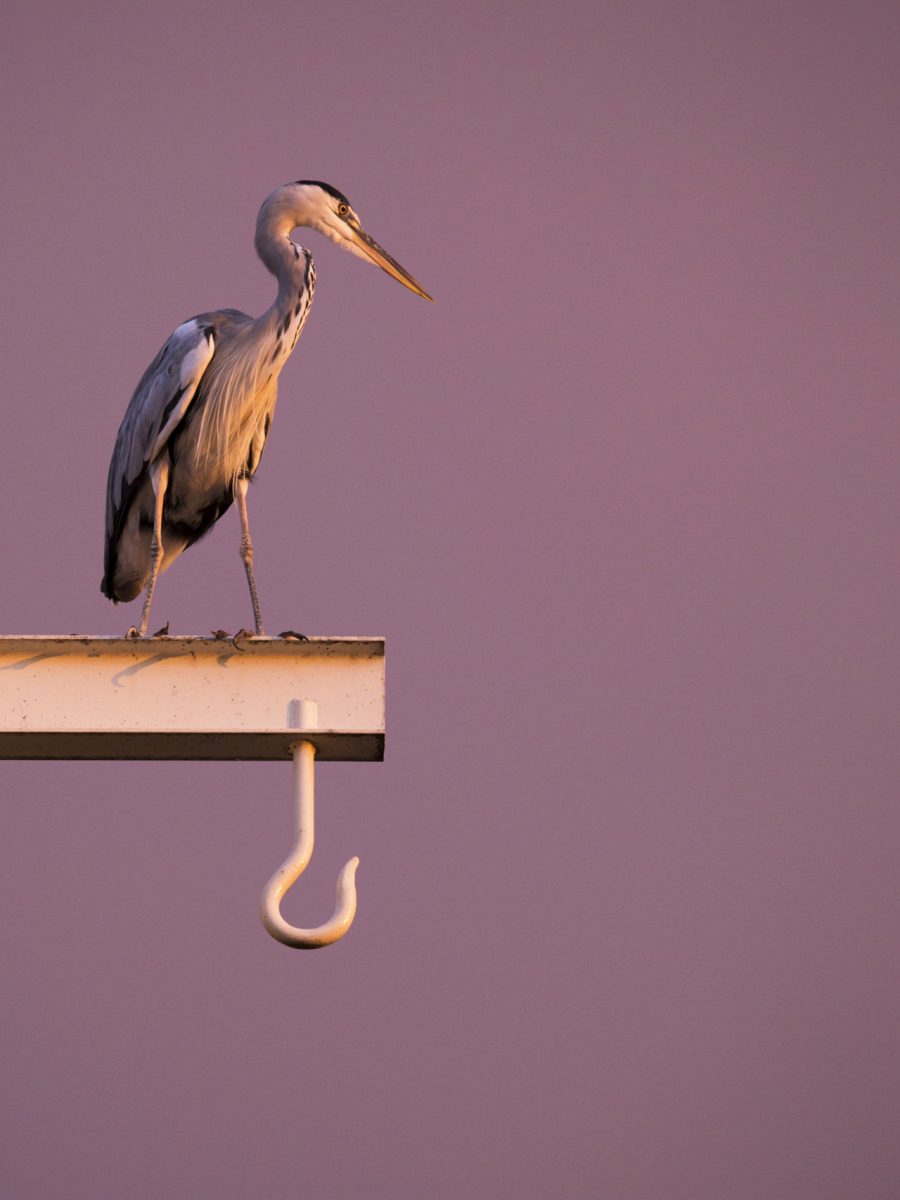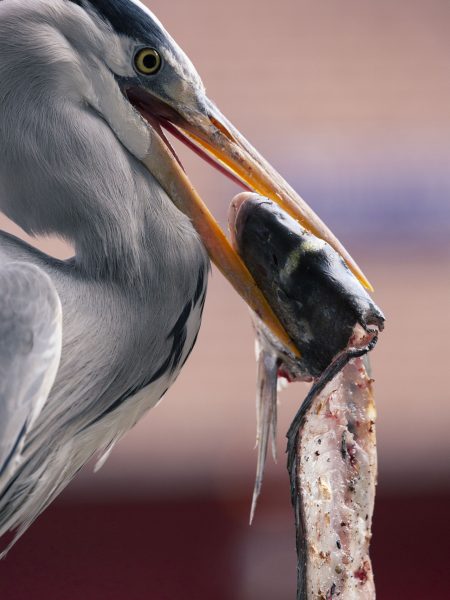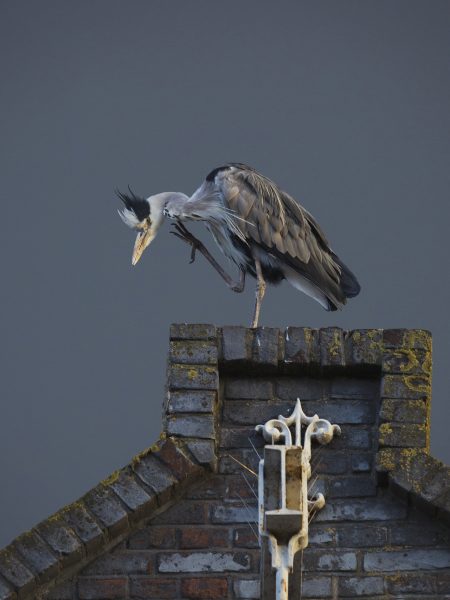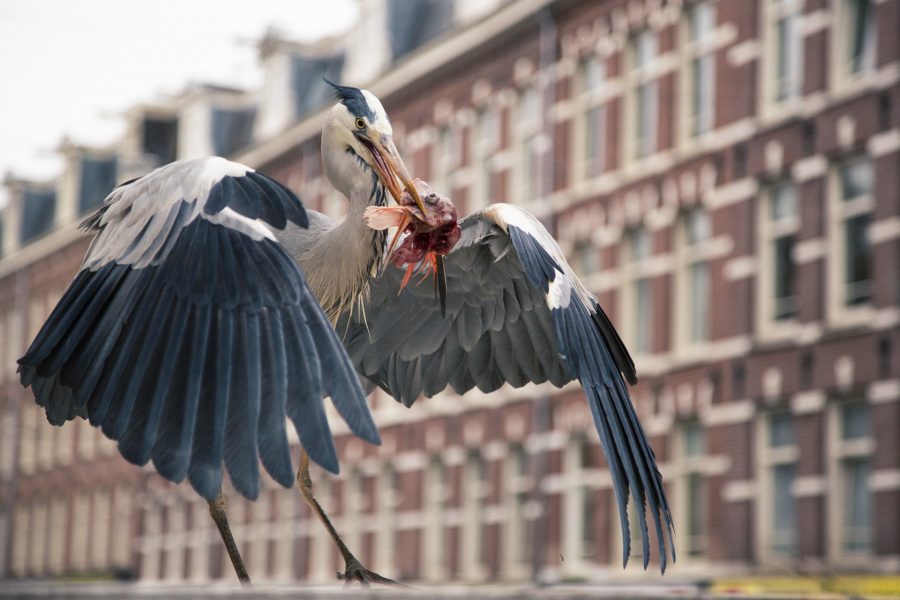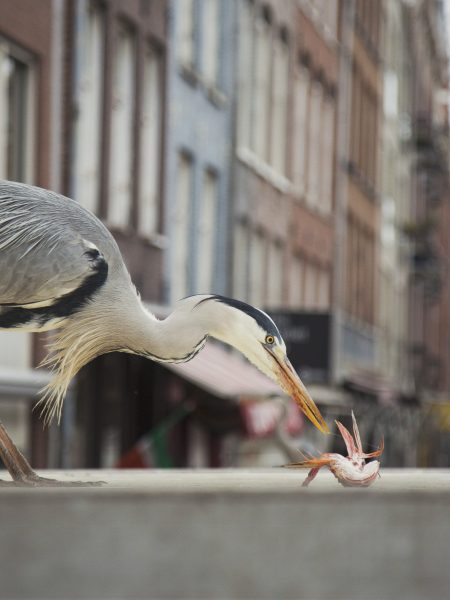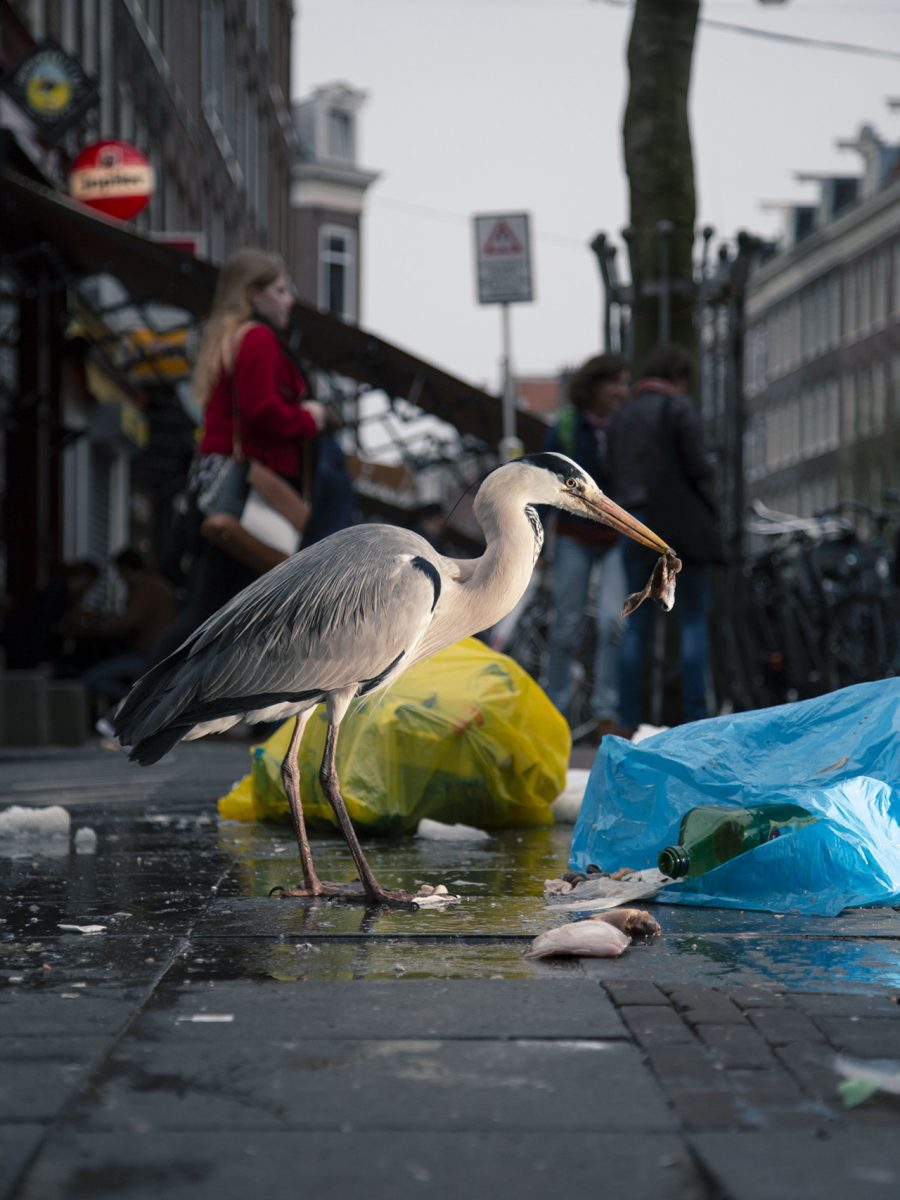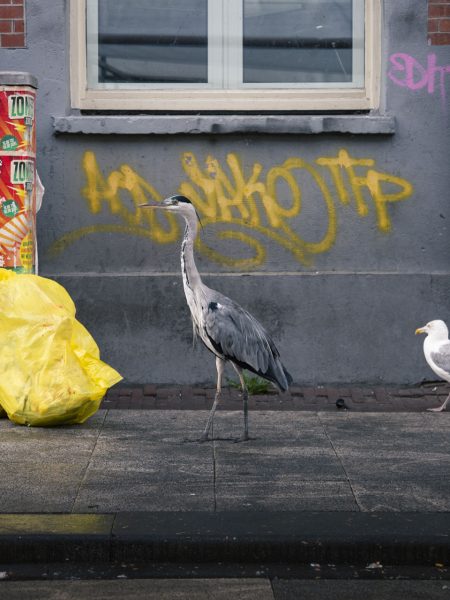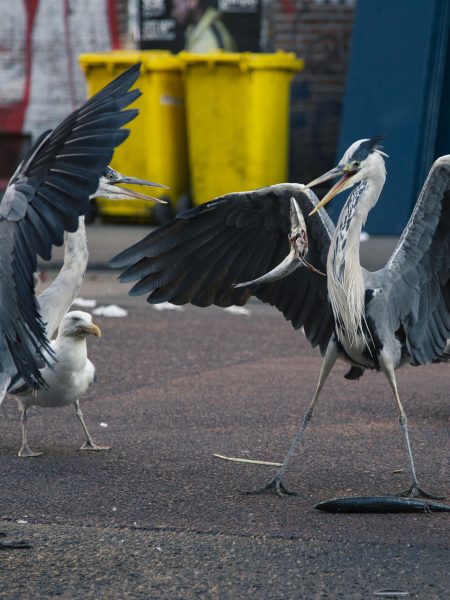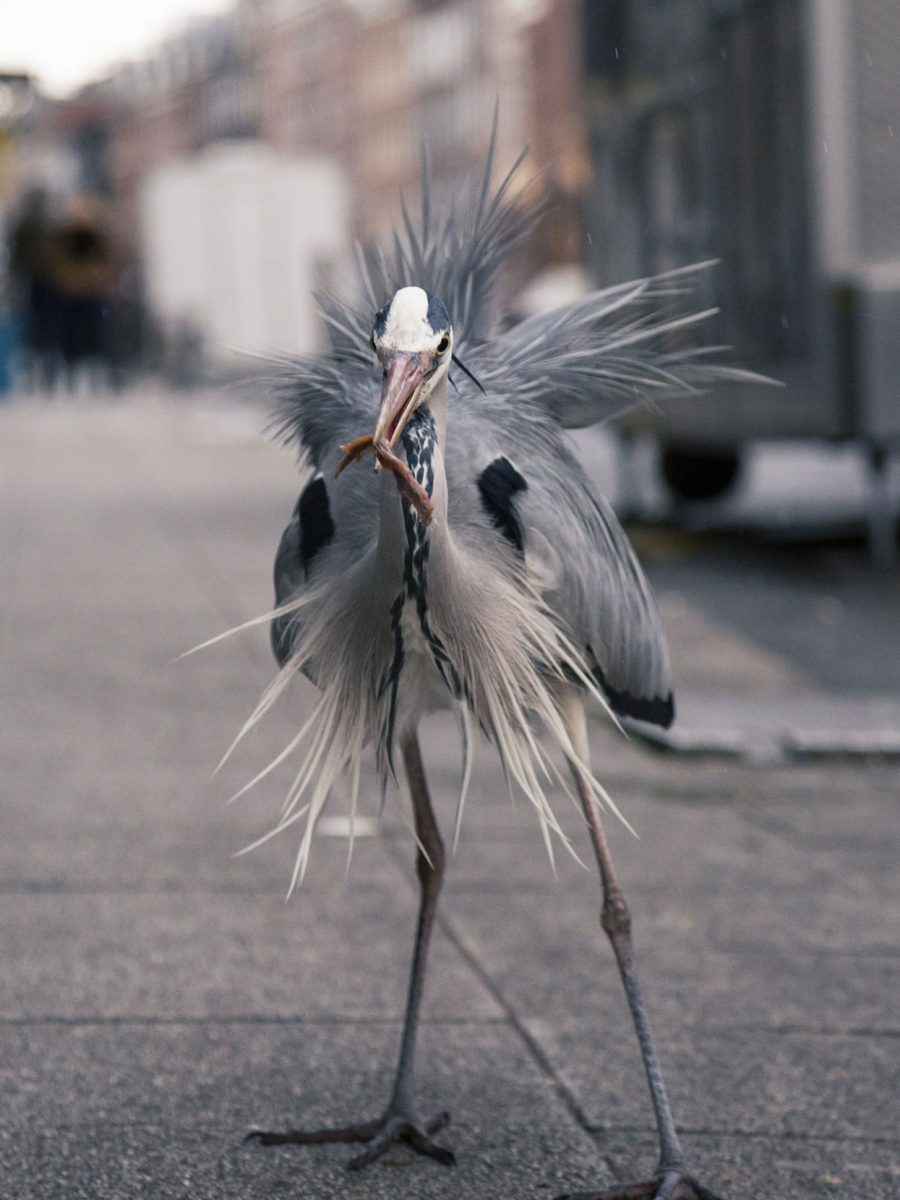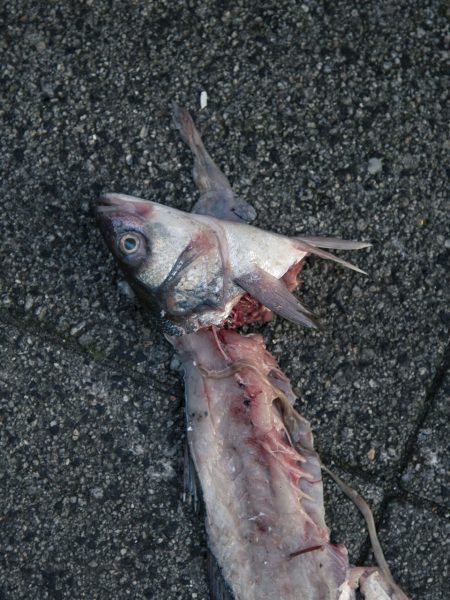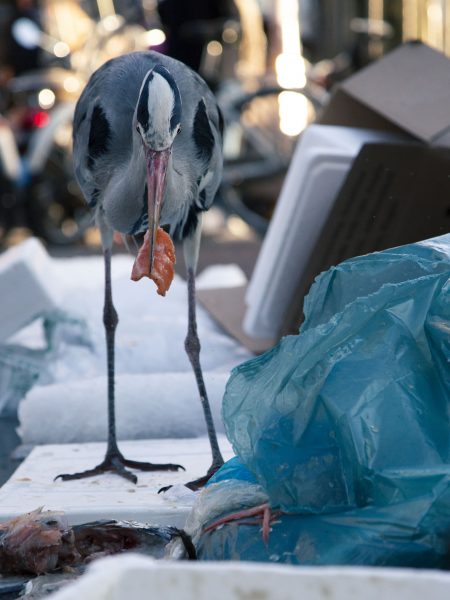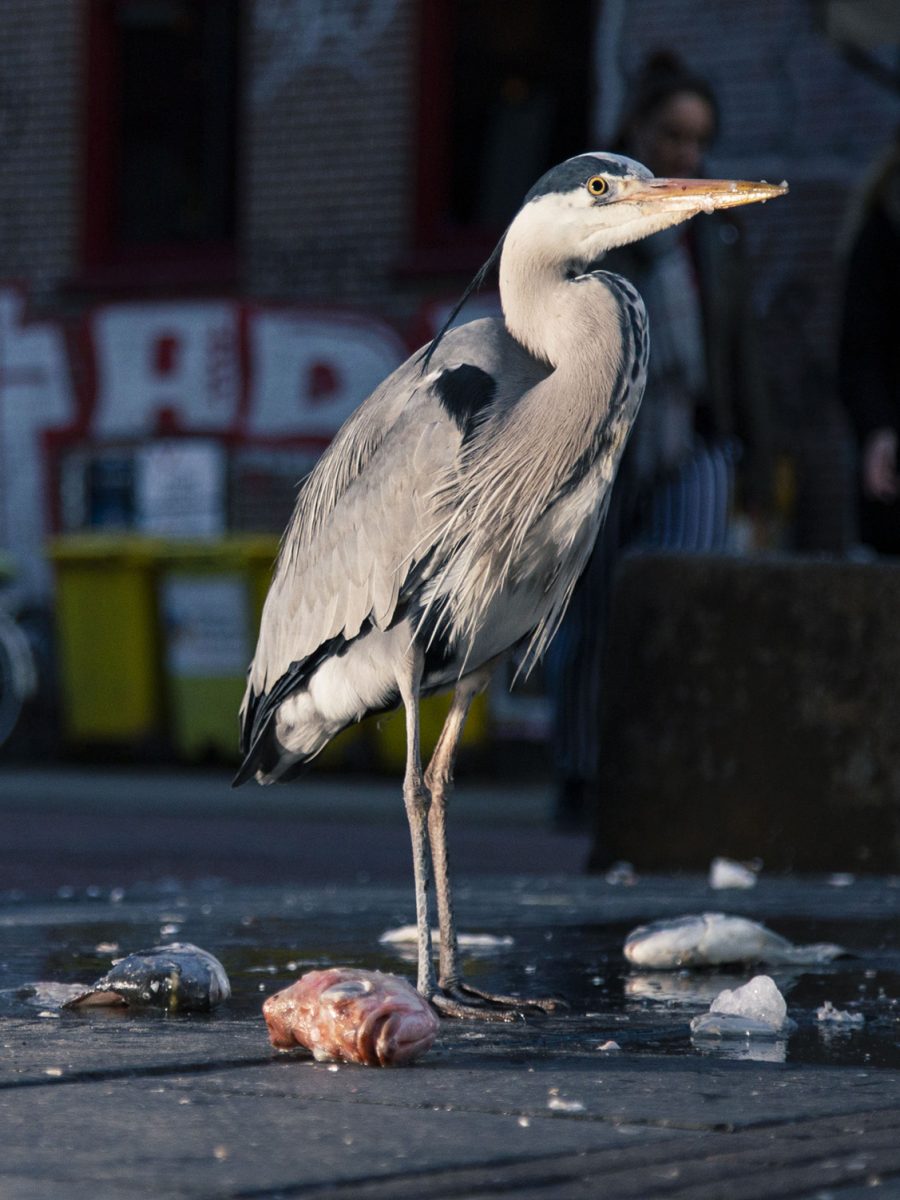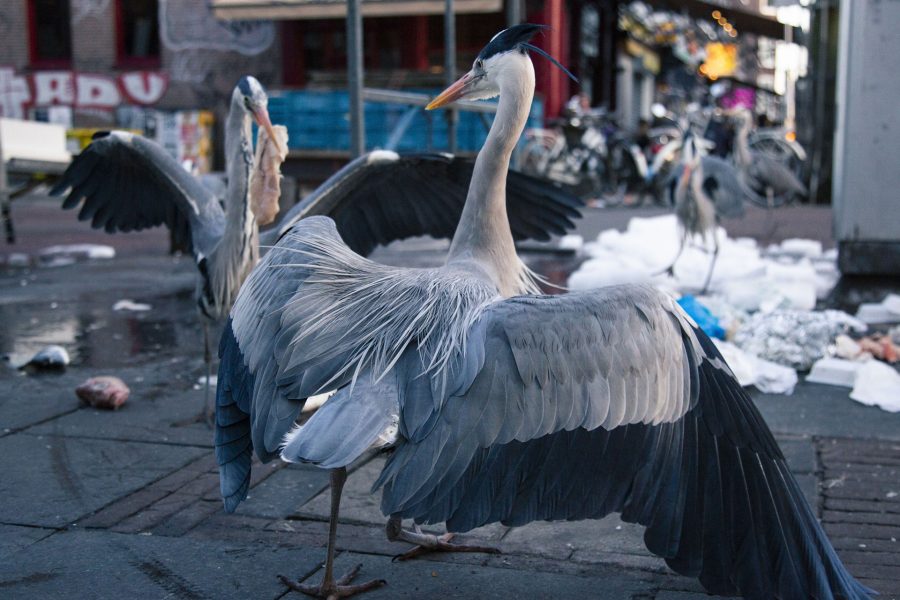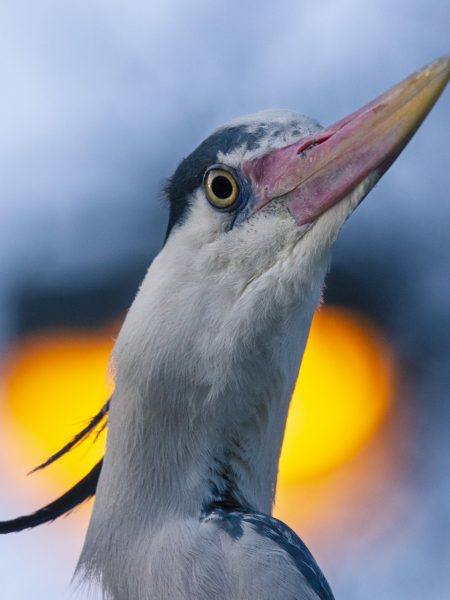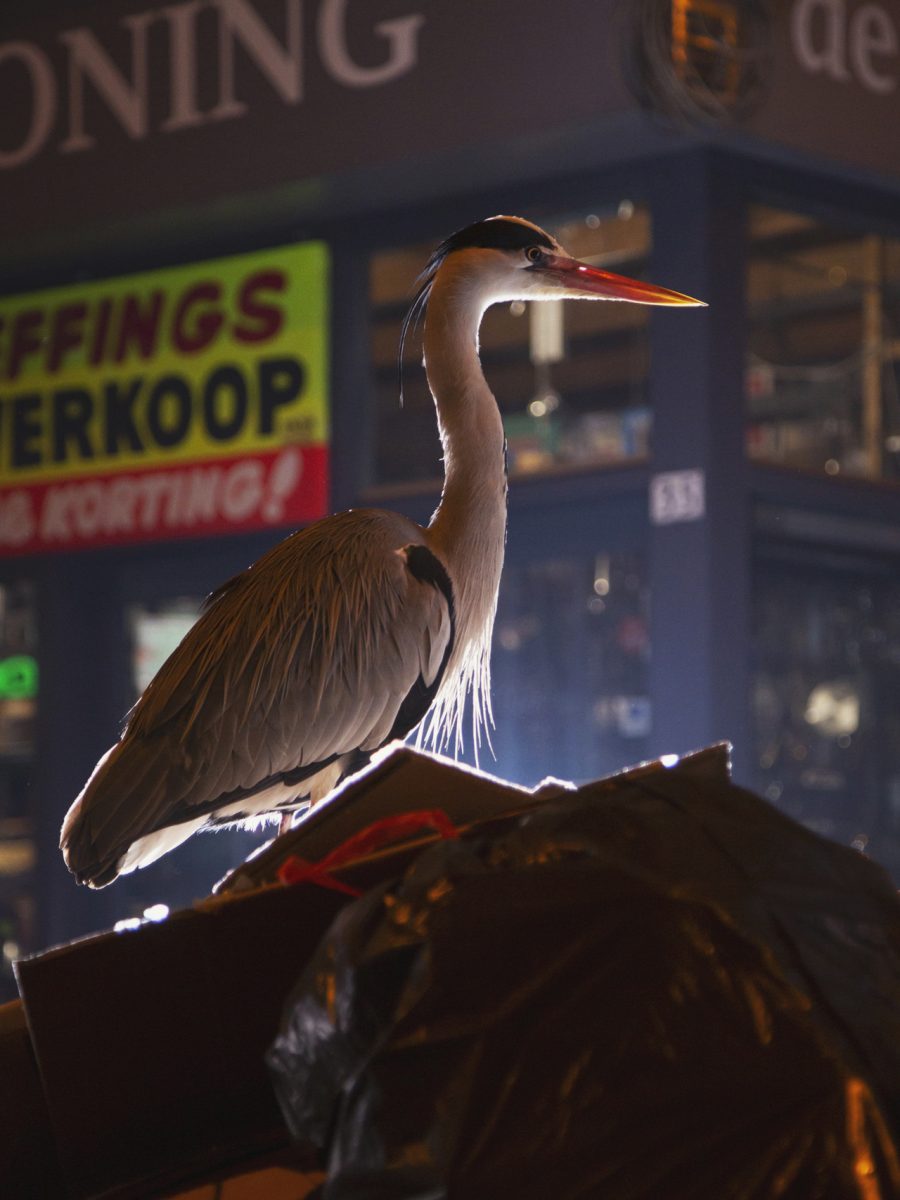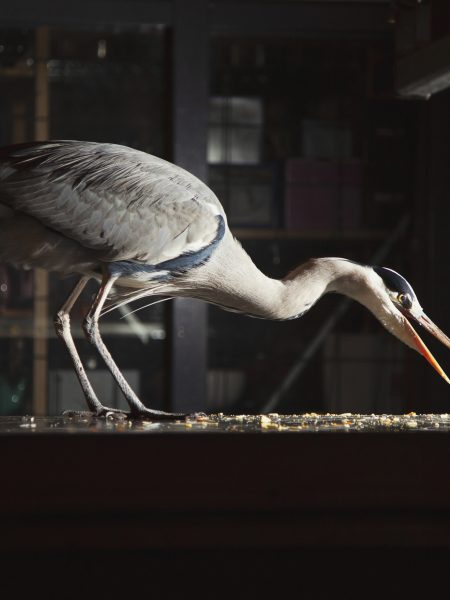Flying Trash Bags
Amsterdam Heron Project
Come and see this exceptional show daily at 5 pm – Albert Cuypmarkt, Amsterdam.
5 pm
“Get out of the way!” A shirtless muscular guy calls out, as he single-handedly steers his cart through the crowded Albert Cuypmarkt. While dodging tourists, this guy clears the stalls. The market is coming to an end and it looks like the party is over. But not for everyone. A group of grey herons is starting to gather around on the Amsterdam facades.
5.30 pm
They gather around the pile of garbage next to a fish stall. The pile is getting bigger and bigger and the herons are foraging for food. Fish, shrimp, chicken and cheese are on today’s menu. Keeping an eye on both their food ánd the competition can turn dinnertime into fierce battle around here.
7.00 pm
Garbage bags are getting ripped apart in search of food and the street is starting to look like a dump. The birds need to be quick, time is of the essence. With the arrival of the garbage men, the feast will be over.
7.30 pm
‘Gangsta’s Paradise’ by Coolio is blasting out of the wireless speaker around the neck of one of the garbage men. The street is theirs now. Garbage bags are flying through the air and in a few minutes the pile of waste will be gone. By the time the street sweeper disappears around the corner, the herons have already left. They’ll be back tomorrow.
After visiting the Albert Cuypmarkt a few times, the grey heron started to grow on me. I was fascinated by how this bird had adapted itself perfectly to city life. But I also started to wonder. Do they lose their remarkable fishing skills? What are the chances of survival compared to the countryside heron. Because let’s be fair: the litter, infected water, fights and stress can’t be good for their health. Until now I have learned a lot about this species but some questions have not yet been resolved.
“Does a city heron have a better life comparing to the countryside heron?”



